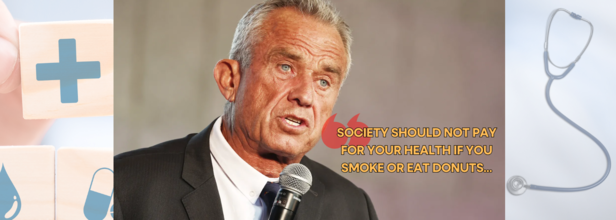
Shah Rukh Khan Feels Breathless After Quitting Cigarettes: What Smoking Does To Your Body
Marking his 59th birthday on Saturday, bollywood megastar Shah Rukh Khan revealed that he has quit smoking. Khan, who had once admitted to smoking 100 cigarettes a day, said that he doesn't feel much but breathless after his new lifestyle change. "Mujhe lga tha ki I will not feel breathless, but abhi woh bhi feel kar raha hoon. Inshallah, woh bhi theek ho jayega. (I thought I wouldn't feel breathless after quitting smoking, but I still do. That too will be okay)
One of the primary reasons that Khan is feeling breathless is because his body is healing. Immediately as a person stops smoking tobacco or any other substance, their respiratory system begins healing. Smoking primarily hurts the cilia, which are tiny hair-like structures within the lungs, responsible for removing mucus and toxins. This cilia becomes active once smoking is stopped, cleaning out tar and mucus deposited during the smoking period. This cleaning process may result in a feeling of breathlessness.
Another factor is nicotine withdrawal. Nicotine stimulates the central nervous system, which includes slightly increasing heart rate and breathing efficiency. When the body goes into withdrawal from this substance, then the person shows symptoms such as shortness of breath, racing heart and anxiety.
The altering of gasses in the respiratory tract also plays a crucial role. After a person quits smoking, carbon monoxide in the blood reduces and oxygen levels rise. This increase may trigger inefficiency in breathing and a change in blood gas levels may manifest itself in temporary shortness of breath.
Here's What Smoking Does Toy Your Body
Smoking has a profound negative impact on the body, affecting nearly every organ. A recent study published in the Journal of the American Heart Association highlights that smoking increases the risk of cardiovascular diseases by damaging blood vessels and reducing blood flow. This can lead to conditions such as atherosclerosis, heart attacks, and strokes.Moreover, smoking harms the lungs, leading to chronic obstructive pulmonary disease (COPD) and lung cancer. The toxic chemicals in cigarettes also impair the immune system, making smokers more susceptible to infections. Additionally, research indicates that smoking can accelerate ageing, resulting in skin damage and premature wrinkles.
The study emphasizes that quitting smoking can significantly improve health outcomes, with benefits observed shortly after cessation. As awareness grows about the dangers of smoking, it’s crucial to understand its extensive effects on overall health and well-being.

(Credit-Canva)
Signs That Reveal You May Be Missing THIS Essential Nutrient Your Body
Going about your day-to-day life can often be hectic. You may try to cram everything you need into a day through meals, activities etc., but that is not possible. Even if you eat healthy foods, it is possible that you experience some deficiency. Often these deficiencies have misleading symptoms or signs that may lead you to think it is nothing serious. That is why it is important to make sure you are eating wholesome and well-rounded meals, as well as getting checked regularly.
Not having enough adequate essential nutrients can cause significant changes to your body. One such nutrient is Iodine. Dr. Eric Berg, popularly known as Dr. Berg on social media, who is a board-certified chiropractor based in xxx, is a well-known YouTube personality who shared his knowledge about Iodine and its deficiencies. He explained that if we don't have sufficient iodine, our bodies cannot produce enough of these vital thyroid hormones, and that can lead to various health issues and affect how our bodies function daily. Therefore, even though it's a trace element, obtaining adequate iodine is actually crucial for maintaining good health.
Signs of Low Iodine
Dr Berg explained that iodine is truly vital for the thyroid gland. This small gland in our neck performs a significant role because it influences nearly every single system within our body. Here are some strange signs of it you may be experiencing:
Outer Eyebrow Thinning
If you notice the hair on the outer edges of your eyebrows starting to get thinner or even disappear, this could be a subtle sign that your body isn't getting enough iodine, which is important for healthy hair growth.
Increased Hair Loss
Losing more hair from your head than usual, like finding extra strands on your pillow or in the shower drain, might be a signal that your iodine levels are low, as iodine helps keep hair follicles healthy and strong.
Hoarseness
If your voice starts to sound rough or hoarse for no clear reason, like a cold, it could be related to your thyroid not working properly due to low iodine, which can affect the vocal cords.
Enlarged Tongue with Indentations
If your tongue looks bigger than it used to, and you can see little dents or scalloped edges along the sides, this unusual change might be a sign that you're not getting enough iodine.
Unexplained Weight Gain
Putting on weight even though you haven't changed how much you're eating could be a sign of low iodine, as the thyroid needs iodine to help control how your body burns energy.
Symptoms Linked to Elevated Estrogen
For women, things like gaining weight around the hips and having periods that are much heavier or more painful than normal might be connected to low iodine and its effect on hormone balance.
Impaired Cognitive Function
If you're finding it harder to remember things, focus on tasks, or solve problems, it could be a sign that your iodine levels are low, as iodine is important for healthy brain function at all ages.
Can Food Improve Iodine Deficiency?
The good news is that most people can easily get enough iodine by just eating a mix of different foods. Lots of common things we eat have iodine in them. For example, milk and other dairy foods like cheese and yogurt are good sources. Eggs also have it. Plus, if you eat fish from the sea, like cod and tuna, and shellfish like shrimp and mussels, those are great ways to get this important nutrient.
Steps Taken To Improve Iodine Intake Of People
The government of India has taken many steps to help people increase their iodine intake. 21st October is recognized as World Iodine Deficiency Day to educate people about its importance.
According to the Ministry of Health and Family Welfare, a decision to iodize all edible salts in India was started in 1986. By 1992 their aim was to completely iodize all edible salt, which they achieved. As of 2024, India produced 65 lakh metric tonnes of iodized salt to meet the needs of the country's citizens.

(Credit-Canva)
Your Lifestyle Choices May Be Causing You Dopamine Deficiency
While you may not realize it, whenever you are feeling a certain way a lot of your body’s hormones are at work. Whether it is anger, sadness, or happiness, hormones like cortisol and dopamine are at work. Whenever you feel giddy or satisfied, it is basically your body pushing dopamine into your body. These triggers do not have to be extreme or funny, it could be a simple meme you saw, or a new follow. Dopamine plays a very important role in your day-to-day life. However, what happens when you stop feeling excited or happy when good things happen to you?
What if you stop seeing the point of doing certain things you enjoyed because they no longer bring you so much joy? You could be going through a dopamine deficiency.
What Happens When Your Brain Doesn’t Have Enough Dopamine?
The Cleveland Clinic explains that if your brain isn't making enough dopamine, you might start feeling like you have no energy or drive to do things. You could become more forgetful and even feel anxious because this important feel-good chemical is low.
In serious illnesses like Parkinson's disease, the brain loses cells that make dopamine, leading to a big drop in its levels. Some drugs, like cocaine, cause a huge, quick release of dopamine, but they also damage the parts of your brain that receive dopamine, making it harder to feel pleasure naturally over time and leading to addiction.
Could Your Lifestyle Choices Affect Your Body’s Dopamine?
The way you live your life every day can also change how much dopamine your brain makes. Eating a lot of unhealthy, saturated fats, not getting enough sleep night after night, and constantly feeling stressed out have all been shown to make your brain produce less dopamine. This means that simple things you do regularly can have a real impact on your motivation, mood, and overall well-being by affecting this important brain chemical. Taking care of your body and mind can help keep your dopamine levels healthy.
Sleep And Depression
According to a 2012 study in the Journal of Neuroscience explained that the dopamine rushes you get from seeing new posts or watching videos can actually keep your brain wide awake when it should be winding down. If you're already not getting enough sleep, it creates an even bigger problem. Studies have found that when you're sleep-deprived, your brain actually has fewer places for dopamine to attach, called receptors. This can make you feel much more tired, slow, and less alert throughout the following day because your brain isn't using dopamine as effectively as it should.
Stress And Dopamine
A 2012 review in Neuroscience and Biobehavioral Reviews explains that dopamine also plays a key role in how you handle stressful situations, and it depends on whether you feel like you have any control over what's happening. When you face something that feels overwhelming, your dopamine levels might initially go up to help you try and cope with the pressure. However, if the stress continues and feels like too much to handle, those dopamine levels can then crash and stay low.
Diet & Dopamine
When you're feeling down or stressed, you might often reach for comforting foods, but what you eat can actually affect your dopamine levels. The International Journal of Obesity Supplements explain that eating a diet that's high in unhealthy fats can actually keep your dopamine levels lower over time. Research in animals has even shown that when mothers eat a lot of high-fat foods during pregnancy, it can change the dopamine levels in their babies, making them crave even more fatty and sugary foods later in life

'Why Should Society Pay For Your Health?' RFK Jr. On Those Who Smoke Or Eat Donuts
"Should society bear the cost of health care for Americans who knowingly engage in unhealthy behaviors, such as smoking or excessive junk food consumption?"
In a recent interview with CBS News, U.S. Health Secretary Robert F. Kennedy Jr. raised this provocative question. Kennedy used examples like eating doughnuts or smoking three packs of cigarettes a day to illustrate his point, asking whether individuals should expect the same level of public support as those with congenital or unavoidable health conditions.
“I’m not going to take those choices away,” Kennedy emphasized, stressing that people should be free to eat and drink what they like. But he questioned whether society should be expected to fund the consequences of such choices, suggesting that incentives — both for individuals and industries — should be realigned to better support desired public health outcomes.
Public Health Experts Raise Concerns
Kennedy's remarks quickly drew criticism from health experts and advocates. Many viewed the statements as a slippery slope toward policies that could limit access to care based on personal behavior. Joan Alker of Georgetown University noted that this echoes past attempts, like West Virginia’s 2007 Medicaid plan that restricted benefits for patients who failed to follow health guidelines. That plan was eventually scrapped.
Critics warn that Kennedy’s comments hint at a punitive approach rather than one grounded in support, education, or evidence-based policy. Regina LaBelle, a former drug policy adviser, said the remarks marked a return to a time when public health relied more on “shame and stigma” than on science and support.
Cuts to Health Programs Add to Concerns
The timing of Kennedy’s statements is especially significant. They come amid major layoffs in his department, including at the CDC and FDA offices responsible for smoking cessation and tobacco regulation. Ironically, these are the very programs designed to prevent chronic illnesses before they start — illnesses often linked to smoking and poor nutrition.
Though Kennedy has pledged to focus on personal empowerment, the downsizing of health programs and public messaging campaigns raises doubts about how effectively the administration can support Americans in making healthier choices.
Mixed Reactions From Policy Circles
Not everyone disagrees with Kennedy’s stance. Michael Cannon of the Cato Institute welcomed the idea of holding individuals accountable for their choices, arguing that people are less likely to make harmful decisions when they must bear the consequences themselves. He said, “The Constitution doesn’t say anything about health, much less doughnuts and cigarettes.”
On the other hand, watchdog groups like Public Citizen pointed out the inconsistency in Kennedy’s health agenda. While he has criticized the role of corporations in promoting obesity, he has also expressed reluctance to expand access to costly weight-loss drugs, raising questions about how the government plans to tackle chronic health issues.
The Larger Debate
Kennedy’s comments open up a broader national debate: Where should the line be drawn between personal responsibility and public support in healthcare? As the U.S. grapples with rising health costs and growing chronic illness, this question is likely to resurface — with no easy answers in sight.
© 2024 Bennett, Coleman & Company Limited

